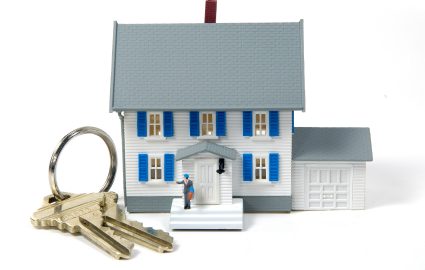Four Hidden Costs Of Buying A Home
 Homeownership can be stressful or an exciting experience. Many first time home buyers can be taken by surprise by unexpected expenses or costs. Most of these costs do not stop at closing. Per Zillow, Americans pay approximately $9,000 per year in extra home ownership costs.
Homeownership can be stressful or an exciting experience. Many first time home buyers can be taken by surprise by unexpected expenses or costs. Most of these costs do not stop at closing. Per Zillow, Americans pay approximately $9,000 per year in extra home ownership costs.
Below are the top four unexpected costs:
Closing Cost
Per Zillow, closing costs can add 2 to 5% to the sale price. Closing costs depend on where the property is located, the property you bought and the type of mortgage you chose. So if you’re buying a $200,000 home, expect to pay an extra $4,000 to $10,000 in closing costs. This cost usually includes:
- Lender fees for services like wire transfer, administrative costs and checking your credit score.
- Appraisal fees to cover the appraisal of the property because the lender wants to make sure that the property appraises for the sale price. This cost can run several hundred dollars.
- Title or Attorney fees are paid for government filing fees, escrow, notary fees and other fees associated with transferring the deed to your name.
- Escrow fees are required because you might need to pay upfront for some of your property taxes and insurance in an escrow account.
Insurance
It costs a lot more to insure a 3 bedroom house compared to a 1 bedroom apartment. So even if you have renter’s insurance you have to budget for insurance when owing a home. Insurance costs depend on your credit score so the amount paid varies from person to person. Also, the type of property you bought can also impact your insurance. An old house, could actually end up costing more in insurance because old wires, electrical and plumbing are more prone to failure.
Also, if you live in a flood prone area, tsunami zone, earthquake zone or tornado/hurricane prone area you also need to be prepared to pay extra for hazard insurance.
Utilities
Apartment dwellers are sometimes surprised by the increase in their utility fees when they move into their new home. When you live in a 1 bedroom apartment, you generally have a couple of rooms to light and limited floor space to heat or cool. However, if you live in a house, there are more rooms to light, heat or cool. All that floor space translates to an increase gas, water and bills.
When you rented, your landlord probably paid for expenses like trash pickup or neighborhood association fees, however now that you’re a homeowner, you can be stuck paying this bill.
Maintenance
If your air conditioner goes out when you’re a renter, all you have to do is call your landlord. Now that you own your home, it’s going to be more painful since you will have to pay for the repairs from your own pocket. Owning your own home means paying for your own maintenance costs. If you’ve rented for a long time, it can be easy to underestimate the cost of maintaining a home and jammed garbage disposals, leaky faucets and cracked walls can catch many first-tie homeowners off guard.
It’s usually better to be on the side of caution and set aside 3% – 5 % of the original purchase price for maintenance costs. This could amount to $10,000 for a $200,000 sale price home. This is a lot of money so consider it as an emergency fund for your home if it is unused.
Even with these expensive costs, buying a house is still a better long-term financial decision than renting a home. If you’re unsure on whether to rent or buy learn more here. If you do decide to buy a home, knowing about these unexpected expenses will help you prepare for any surprises.
Looking for a premier realtor to facilitate your home purchase transaction, learn more here.